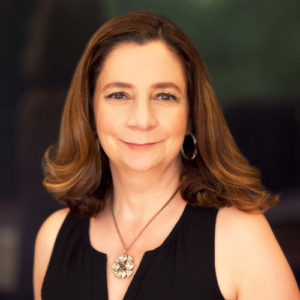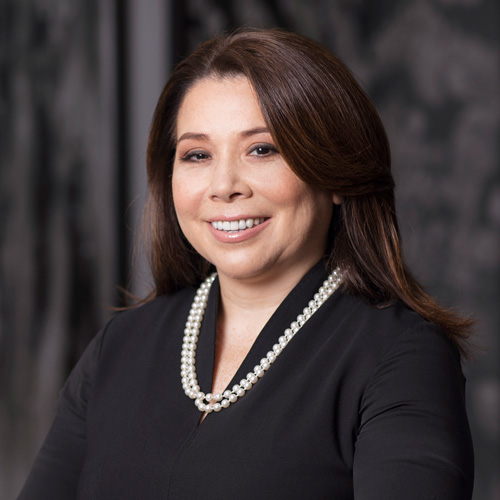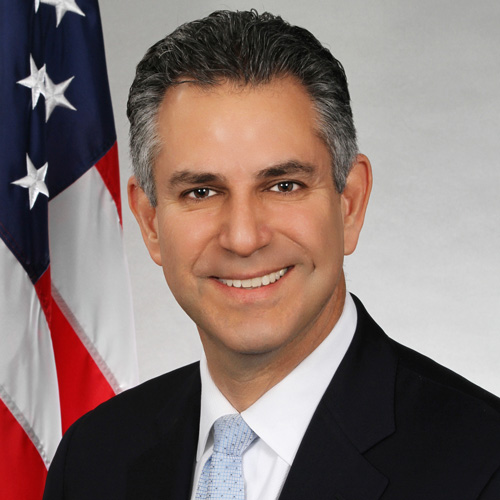
As associate general counsel for Uber, Angela Padilla is in the legal space of trying to navigate complying with the law in a new economy of sharing. Padilla sat down with Hispanic Executive to discuss the obstacles of trying to keep up with a startup, how her personal battle with cancer has made her a more tenacious lawyer, and how it brought her to the nonprofit world.
How did you get your start in law?
In college, I interned at the Brooklyn District Attorney’s Office and worked in the sex crimes unit and basically was a paralegal helping them prepare rape and child abuse cases. I got to attend a lot of trials in that internship and that really got me interested in the courtroom and litigation. It was very hard to see young children being abused and hard to sit through rape trials, especially if the jury found the defendant not guilty when you thought they were. But it’s important work.
What were some of the takeaways?
I loved the courtroom and being an advocate, the drama of the witnesses, the evidence, the jury, and all of the things you discover along the way. I got hooked.
What was the transition from working at the DA’s office to commercial litigation like?
Most people don’t start in a DA’s office. In 1991, I started in civil litigation. I thought I would only stay for a few years and then move on to criminal law. I found that I loved commercial litigation and learning the ins and outs of new industries and businesses. It surprised me, so I decided to stay and I have been doing it for the last twenty-five years.
What was the biggest difference moving from a law firm to being in-house?
It’s a huge transition going from partner at a law firm to in-house lawyer. At a law firm, the lawyers are the stars and are the ones bringing in the revenue. At a company, the lawyers are a support role and are by no means the stars—those are the engineers or business development guys. The lawyers are there to enable the business, but it’s not all about them.
What is it about working in-house that you love?
I love being embedded with the business and only having one client—where I can really sink my teeth in and be there when we are developing new products and lines of business. In-house, we are moving in real time. At a law firm, it’s not as fast paced. I prefer being kept on my toes. I never know when the CEO, CFO, or head of engineering will walk over to my desk and need me answer important questions in real time. I love the challenge.
How did you end up at Uber?
Someone I used to work with at VMware had moved to Uber and reached out to me looking for a head of litigation. They were looking for a person who was street smart, scrappy, a fighter, business savvy, and fearless. He said he thought I would be the perfect fit. I went in to meet the general counsel, and I was immediately interested. My previous company was public, and Uber is private. Thought it’s a mature startup, it still has a startup-feel. There’s still a lot of building to do, designing new processes, efficiencies, and really helping out on the ground floor. It was a huge opportunity and has been extremely challenging. It’s the hardest fun I’ve ever had.
Uber has been in the headlines for employment issues—how is your team handling this?
We certainly have a lot of interesting legal issues, including employment issues. The big question is how does the gig economy, or sharing economy, fit in the traditional employment law system? How are people who use apps like Uber or TaskRabbit classified? We [Uber] are very disruptive in this area. Ridesharing is a new and innovative business, and we are tackling it state by state because each state has its own tests for independent contractors. The states consider whether the company has control over the employees, or if they can work for competitors, or if they can choose when they go in to work. So far, the weight of authority has been going in our favor. I think at the end of the day, the entire gig economy will gain widespread acceptance in the court of law. The courts will see that they [workers] are, in fact, independent contractors. You can decide to turn on the app for two hours, and then if you’re tired, need to run errands, or want to go to yoga, you can turn off the app. We have many drivers who drive for both Lyft and Uber, so because we don’t control the terms of work, I really think this situation provides the ultimate flexibility for workers.
What are some challenges with involved with ever-changing technology?
More and more artificial intelligence is being developed. We recently acquired a self-driving truck company called Otto and we are developing eighteen-wheelers driving by radar. The law still has to figure it out and catch up with this type of technology. It’s going to be a challenge due to a lot of issues with privacy and data. Technology is moving so quickly, the law struggles to keep up.
Padilla Nonprofits
BAY AREA YOUNG SURVIVORS (BAYS)
Founded: 2003
About: Angela Padilla created BAYS to fill the need for a support and action group for young women in the San Francisco Bay Area living with breast cancer.
FAMILY DOG RESCUE
Founded: 2010
About: Padilla is the founder of San Francisco’s first brick and mortar dog shelter. Family Dog Rescue saves more than 800 dogs annually.
Tell me about your two nonprofits.
They are both a result of my battle with breast cancer in my mid-thirties. I was shocked when I was diagnosed. I was perfectly healthy and no one in my family had it. Then, I was diagnosed with an aggressive cancer and doctors told me they were not sure how much time I would have to live. One of the worst things is to be a young mom holding your baby and being told that you have a life-threatening case of cancer.
Everyone I knew who had been diagnosed was in their fifties, sixties, or seventies. There was no support for women in their twenties or thirties, so I created a support group for women in Northern California. It’s called Bay Area Young Survivors (BAYS). We hold monthly support group meetings that include hikes and field trips. It has grown so much and provided unduplicated networking and social support. It’s helped thousands of young women.
In 2010, I founded Family Dog Rescue. When I was diagnosed, I was sad and lonely. I ended up volunteering at a local dog shelter and felt like the dogs were keeping me optimistic. They didn’t care that I was bald or sick, they just accepted me. I found them to be so life-affirming, that I decided to start a dog rescue organization. We now have ten employees and we specialize in dogs that are born with disabilities, dogs that have a history of illness, or of abuse and neglect.
It seems like cancer really changed your outlook on life. Can you explain how it affected your career?
Having cancer taught me to focus on the things that mattered. It made me a better lawyer because I could crystallize issues and see the big picture. I’m now more laser-focused and fierce. Once you’ve had a life-threatening case of cancer, it feels like nothing else can hurt you. I’m the most fearless litigator because I’ve already stared down one of the worst things. It’s a hell of a way to get that confidence.
What is something that you would like to see in the future for your field?
There aren’t a lot of Latinas in the higher reaches of technology and big international law firms. I was the first Latina ever to be elected a partner at Morrison and Foerster and Orrick. In technology, we need more African Americans, Latinos, and women getting involved. It starts early. I believe in mentoring and empowering more junior attorneys and having them spread their wings. I always tell people to push themselves out of the comfort zone. My mantra is try something that scares you every day because that’s how you grow.

